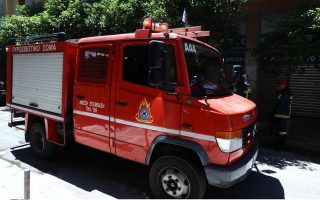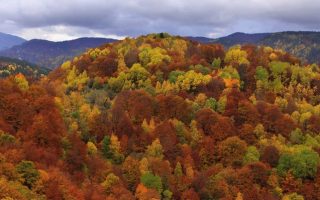Raptors returning to Dadia after devastating fire

Positive signs first emerged in April when experts found that the cinereous vulture (Aegypius monachus), also known as the Eurasian black vulture, a rare but emblematic species of the Dadia Forest in northeastern Greece, had not abandoned the area after what European Union officials described as the largest fire recorded in the EU up to 2023.
The bird remained in the burned zones, nesting in trees that managed to escape the flames or in others that had burned but remained standing and had artificial nests placed atop them by the Natural Environment and Climate Change Agency.
The black vulture remained in the burned zones, nesting in trees that managed to escape the flames or in others that had burned but had artificial nests placed atop them by the Natural Environment and Climate Change Agency
At the same time, scientists who have monitored the Dadia National Park for years observed that other raptors such as the golden eagle (Aquila chrysaetos) and the white-tailed eagle (Haliaeetus albicilla) also stayed. Migratory species began arriving, as the area is a crucial corridor for birds migrating from Africa to Europe and back.
Recently, more optimistic news came from a major study conducted by the World Wide Fund for Nature (WWF) on the Evros forest. The study found that the forest’s natural regeneration is progressing satisfactorily, with artificial reforestation needed on only 865 of the 200,155 acres of forest that burned.
However, the report notes that “fire prevention measures in areas that did not burn are inadequate,” and emphasizes that “if the forest burns again, it will be an absolute disaster.”
The great fire in Evros last August left a bitter taste of losing a unique place, a national treasure. However, nature seems to have a way of healing its wounds. Gradually, the Evros ecosystem, though severely damaged, is restoring itself. Human intervention, if needed, must be done with surgical precision and after careful monitoring and study.
If the Evros forest does not burn again, it appears it will regenerate much faster than we initially thought.





